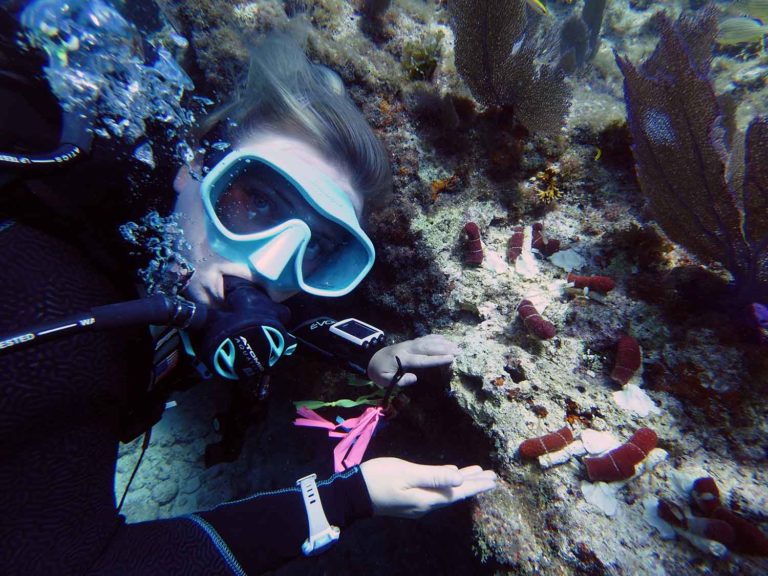A variety of environmental threats hang over scuba attraction the Florida Keys, but a team of dedicated divers are doing their bit to shift the balance by learning what it is that keeps sponges happy. Report and photos by JOHN CHRISTOPHER FINE.
Also read: Deep doodoo: Diver’s-eye view of a Florida problem
“Sponges are the glue of the reef. They hold those rocks together, keep them solidified,” says Bobbie Renfro. This native of Austin saw salt water for the first time when she took a University of Texas course that brought students to the Gulf of Mexico.
That experience resulted in a career change. Bobbie earnt her masters degree in biology from Florida State University, where she is now a doctoral candidate studying sponges off Islamorada in the Florida Keys.
“We’re doing research into how nutrients in the ocean affect sponge growth,” she tells me. “We’re trying to determine whether sponges grow faster in nutrient-rich environments, or whether there is increased mortality.
“We don’t yet know whether run-offs of fertiliser, rich in nutrients like dissolved nitrogen, are good or bad for sponges. We take water samples and analyse them for nitrogen, phosphates and dissolved organic carbons.”
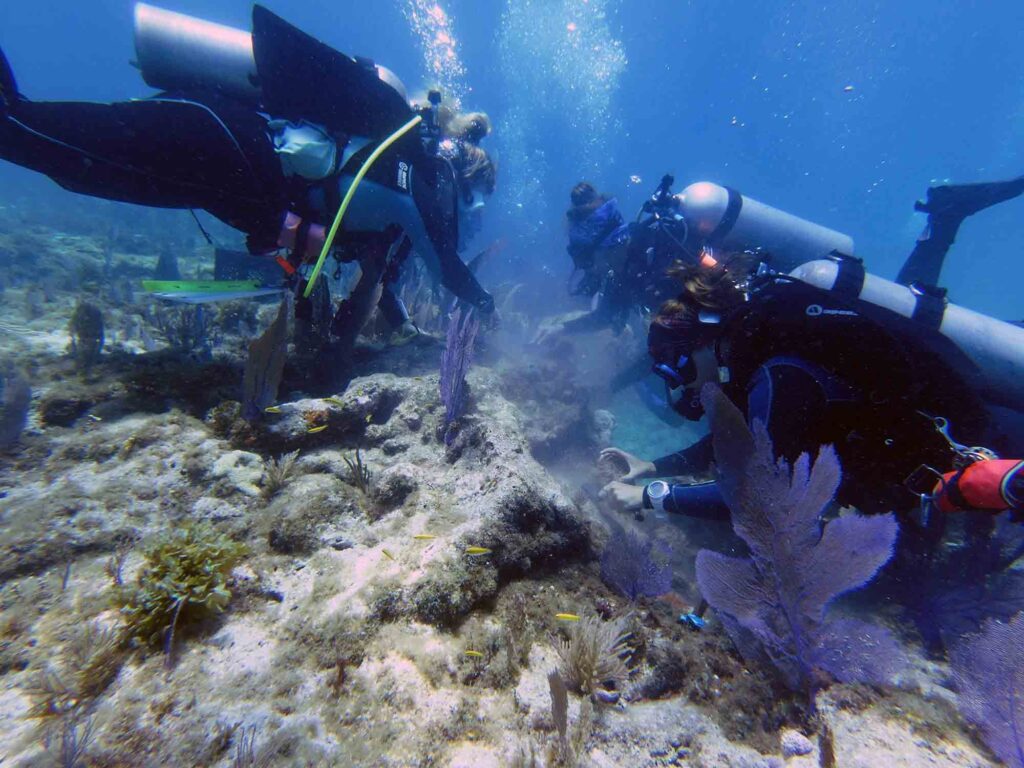
The researchers have been taking water samples inside Hawk’s Channel, where water from Florida Bay is pulled in. Nutrient levels from agricultural run-off have created widespread pollution and marine-life mortality in the bay, and it also enters protected sanctuary areas of the Florida Keys.
“Sponges do not do well in captivity,” says Bobbie. “We do everything in a natural environment. We take small samples from healthy sponges and move them into Hawk’s Channel. We take sponge samples from Hawk’s Channel and move them out into the open ocean. We want to see if higher nutrients in Hawk’s Channel adversely affect them.
“This study will continue this summer and next. Hypothesis is species-dependent – some may do well in higher nutrient levels, others may not.”
Green finger
Bobbie is working with Mike Goldberg, president of Key Dives in Islamorada and co-founder of I.Care (Islamorada Conservation & Restoration Education), a non-profit foundation dedicated to coral-reef conservation, and Dr Kylie Smith, who is attached to Mote Marine Laboratory and Clemson University.
I.Care interns and volunteer divers accompany Bobbie and Mike on dives to plant sponges on reefs offshore from Islamorada.
So far I.Care and University of Florida researchers have worked with three species: the red sponge Amphimedon compressa, green finger sponges Iotrochota birtulata and the rope sponge Aplysina cauliformis.
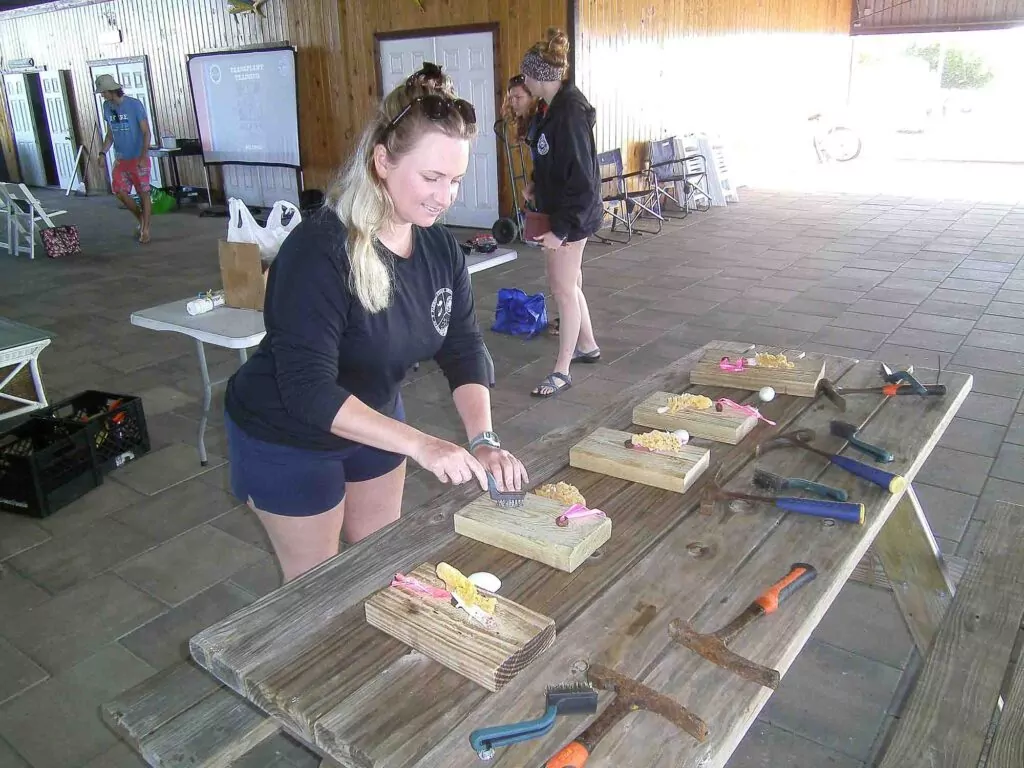
“What we know for sure when we move sponges into mangroves, where there is a naturally higher nutrient level, is that they grow faster,” Bobbie tells me. “The question is, do human-based nutrients do the same?
“The Florida Wildlife Commission has been restoring sponges on the bay side. Sponges in general are filter-feeders – they suck in water and remove the smallest type of plankton. These organisms have caused blooms when we have high nutrient levels in the water. Sponges help to clear the water.”
Nature’s balance
The importance of nature’s balance has yet to be fully understood. Rampant development and agricultural activities continue in Florida, the third most populous state in the USA with about 22 million people.
It needs to keep sugar cane growing and citrus groves producing; to maintain golf courses, lawns and gardens; to support cattle in a state that is a feed-lot for American-produced beef, fattened in Florida’s good weather and made heavy by use of hormones and antibiotics, their waste adding to the groundwater run-offs as well as evaporation that falls back into the ocean every time it rains. All this has required the fertiliser, herbicides and insecticides that destroy coral and marine life.
In the 1970s, live coral coverage in the Florida Keys was about 70%. Today researchers judge it to be 3-5%. Algae that thrive in high ocean nutrient levels have bloomed. As algae dies and sinks to the seabed, it chokes and covers corals.
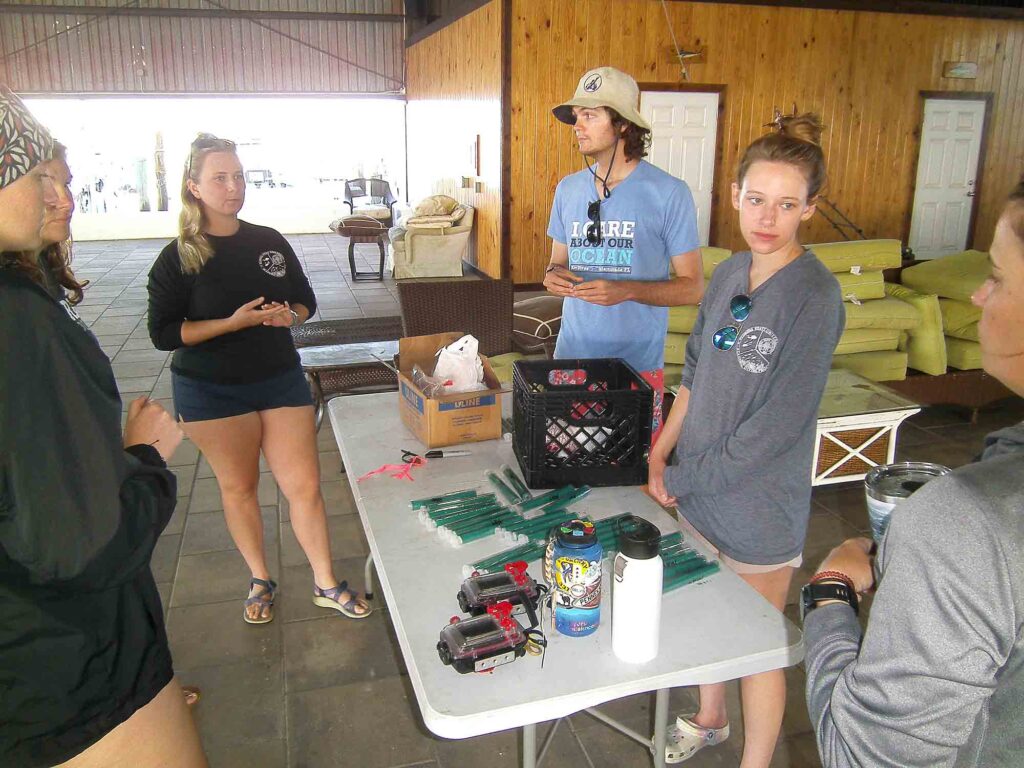
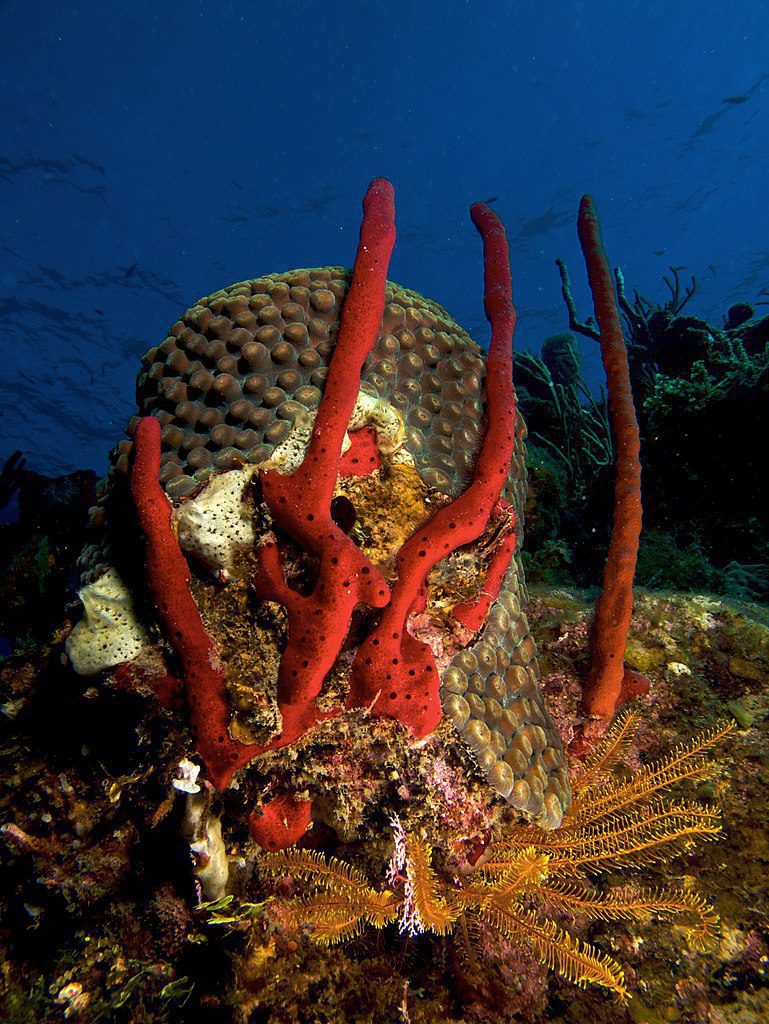
Various weather events – particularly Hurricane Irma, which devastated the Florida Keys in September 2017 – have scoured or scraped sponges off the reefs, says Bobbie. “Working with I.Care, we can let divers who want to help the reef get involved. It’s working well.
“We are restoring the reef, and spreading information about the importance that each organism on the reef has to the overall health of the environment.
“People will come to understand the whole community of the reef system and feel stewardship for it,” predicts this dedicated researcher. “Our relationship with the natural world is important if future generations are to enjoy a healthy reef environment that supports food and marine life, and tames hurricane-force waves, which have 97% of their energy broken up and 84% of their height decreased by offshore reefs.
“Having witnessed the devastation caused by Hurricane Irma, imagine what would have happened without the stopping power of this third-largest barrier reef in the world?” Find out more about I.Care or explore Key Dives.

John Christopher Fine is a marine biologist and has dived shipwrecks all over the world. He is a Master Scuba Instructor, Instructor Trainer and the author of some 25 fiction and non-fiction books on a wide range of themes.
Also on Divernet: Secret Upwardly Mobile Life of Sponges, First Self-Lit Sponges Identified, Viruses Bow To Killer Sponges
